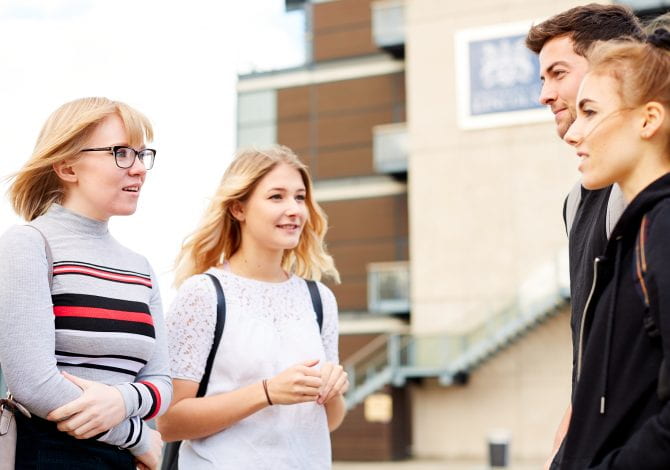There are financial requirements placed on any Student Visa application by the UK Home Office.
You must show that you have enough money to pay the tuition fees for your course and to support yourself and any other people (called dependants) who are included on your visa, unless you’ve been in the UK with a valid visa for at least 12 months on the date of your application.
You will need to provide evidence showing that you have had the required funds for at least 28 consecutive days and the evidence cannot be more than 31 days old when you make your application.
For example; If you submit your application on 1 January 2024, you’d have to show that the funds were in your bank account for at least the 28-day period ending on 1 December 2023.
Further information about financial requirements can be found on the UKCISA website.
Course (Tuition) Fees
You must have enough money to pay for the course fees for the first year of your course, or the entire course if it is less than one year long. If your CAS has been issued for further study on a course that you are already partway through, the ‘first year of study’ means the first year of this new period of study. The Home Office will use the details in your CAS to confirm how much money you need for your course fees.
If you have already paid some or all of your course fees, your CAS will confirm this. If you pay some or all of your course fees after you have received your CAS you do not need to ask for an updated CAS and can use the receipt of payment provided by the University of Lincoln as evidence for the Home Office.
Living Costs (Maintenance)
The Home Office uses fixed amounts, but please bear in mind that these amounts will not reflect your actual living costs whilst studying in the UK.
Further information about actual living costs, including accommodation costs whilst studying in Lincoln can be found on our ‘Living in the UK‘ page.
- To study at the University of Lincoln, you will need to show the Home Office that you have £1,023 available for your living costs for each month of your course, up to a maximum of £9,207 for a course lasting nine months or more.
- In addition, you will need to show the Home Office that you have an additional £680 available for the living costs for each dependant for each month of the course, up to a maximum of £6,120 for each dependant for a course lasting nine months or more.
Use the course start and end dates on your CAS to calculate the length of your course and therefore how many months’ maintenance you will need. If the length of your course includes a part of a month, round it up to a full month. For example if your course dates are 30 May until 1 October, this is four months and two days so you would need to show five months’ of funds.
Deductions
You can deduct the following from the total amount of money that you need as part of your immigration application:
- money that you have already paid to the University of Lincoln towards your course fees, and
- up to £1,334 that you have already paid to your Student sponsor for your accommodation fees, if you are going to be living in university accommodation.
You cannot deduct any advance payment for any other type of housing, nor can you adjust the amounts if you will have no housing costs (for example if you will be living with a relative free of charge).
Your CAS may include details of any money paid to your institution. If not, you will need to provide a paper receipt confirming how much you have paid towards your course fees and/or your accommodation fees.





